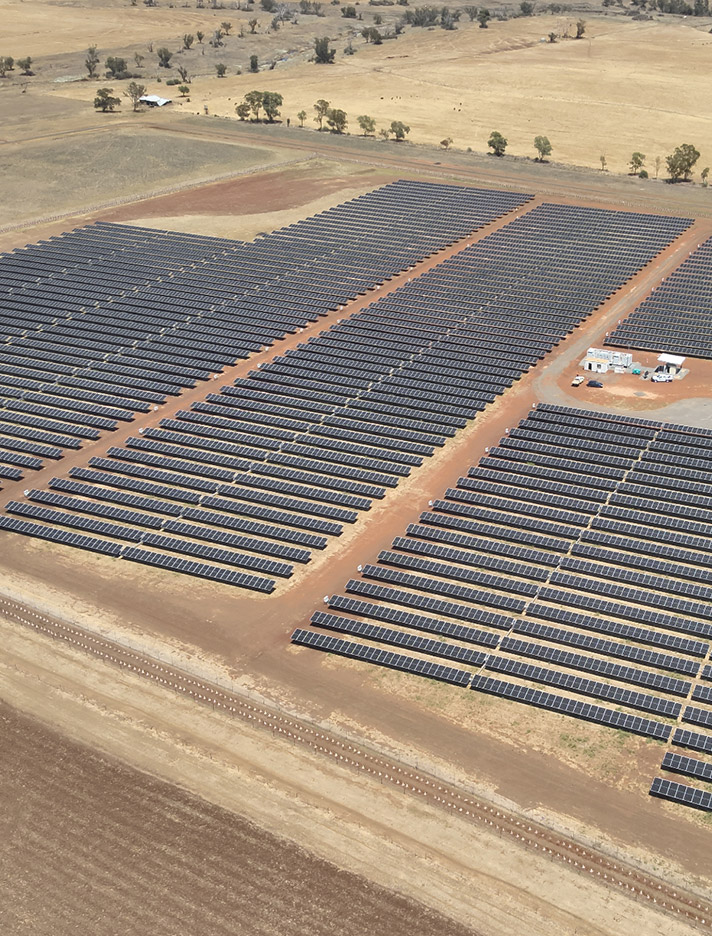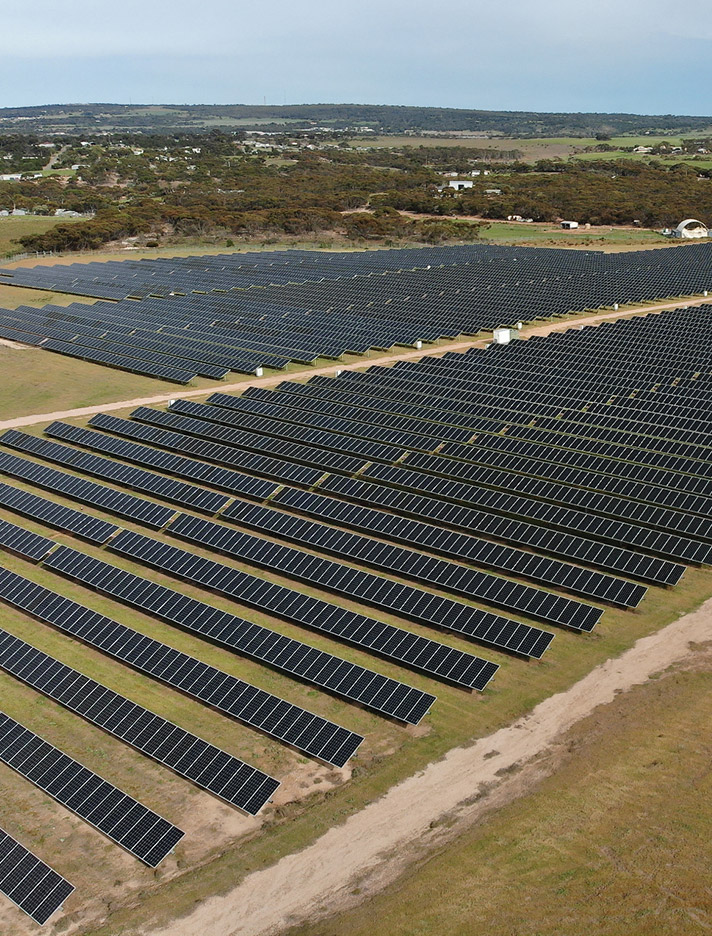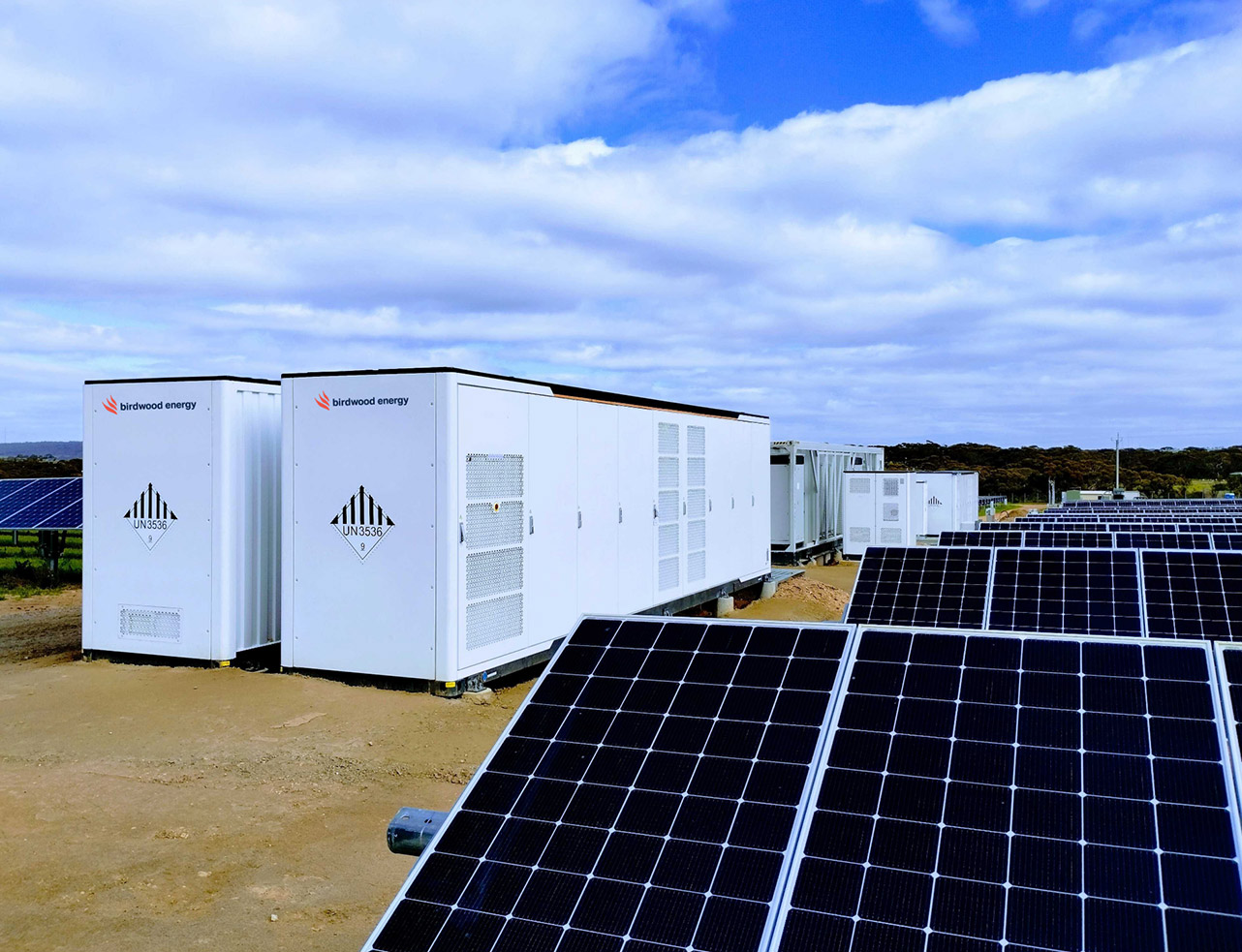Case Study
However solar supply chains are vulnerable to a range of social and environmental impacts with the sector needing to respect human rights of workers, ensuring operations are safe and do not negatively affect the environment through land use change. Suppliers in the cobalt and polysilicon supply chains that includes silicon components of solar cells have been implicated in forced labour practices and human rights abuses.
The United States has implemented a trade ban on some materials in the polysilicon supply chain linked to the forced labour of Uyghurs and other minority groups in the Xinjiang province of China. Research suggests 45% of polysilicon comes from the region.1
In 2023 ENRG operating partner in Australia constructed three solar PV farms in New South Wales. The preferred suppliers for PV manufacturer do not include those blacklisted by governments or associated with human rights abuses. As a first step the operator contractually enforced supplier code of conduct by including clauses in all design, construction, engineering and procurement contracts to enforce code of conduct requirements. Risk analysis of the supply chain led to enhanced due diligence with the operating partner engaging suppliers to request documentation demonstrating compliance with international standards.
Materials provided by suppliers included code of business conduct and ethics, supplier code of conduct, modern slavery statements, human rights policies, labour policies, sustainability reports with audit descriptions as well as letters from suppliers outlining their commitment to fair labour, human rights and environmental protection practices.
There is growing understanding in the solar supply chain about the importance of environmental and social responsibility and traceability. Provenance data of all components is not always currently available and is a challenge. ENRG is committed and with its partners is working collaboratively with suppliers to continually improve understanding and oversight of supply chains to better mitigate risk and address complex supply chain issues.
Partnership is recognised as imperative to achieving the sustainable development goals and it captured in goal 17. Industry partnerships and collaboration will be vital to drive positive change across the solar supply chain.
Sources


